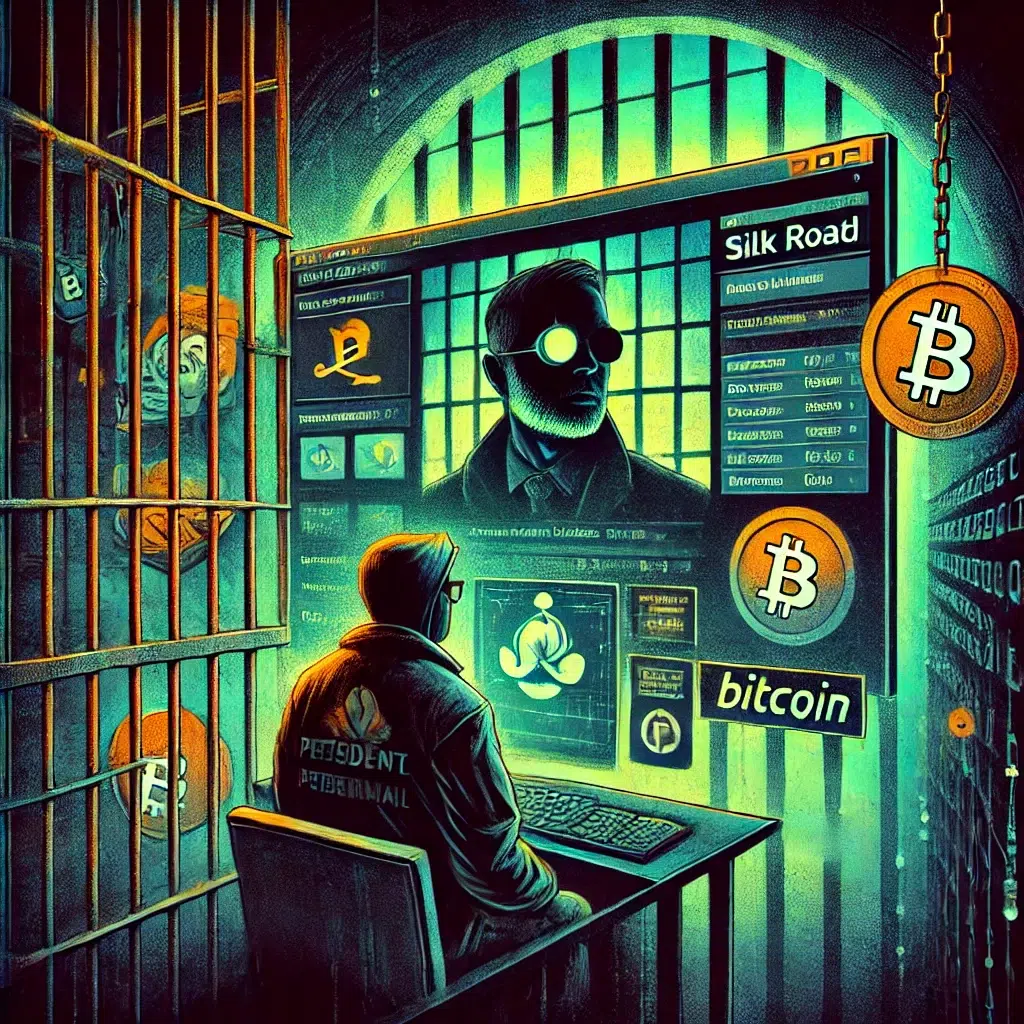
Ross Ulbricht and the Silk Road: The Story of the Dark Web’s Most Notorious Marketplace
The digital age has brought about unparalleled connectivity, innovation, and opportunity, but it has also opened doors to a shadowy underworld that operates in parallel to the surface internet. Among the most infamous stories of the internet’s dark side is that of Ross Ulbricht and the Silk Road, the pioneering dark web marketplace that shocked the world and forever changed online anonymity and illicit trade discussions.
The Origins of the Silk Road
In 2011, a young man with big dreams launched an audacious project that would define his life and cast a long shadow over the future of the internet. Ross Ulbricht, a 26-year-old libertarian with a background in physics and engineering, envisioned a free market unfettered by government regulation. He was ardent in personal liberty, influenced by Austrian economics and the writings of libertarian thinkers like Ludwig von Mises.
Ulbricht’s creation, the Silk Road, was an online marketplace accessible only through the Tor network, anonymising user activity. It allowed buyers and sellers to trade goods and services—predominantly illegal drugs—using Bitcoin as the currency of choice. The platform offered privacy and security in a way traditional online marketplaces could not, revolutionising the trade of illicit goods.
How the Silk Road Worked
The Silk Road operated like a legitimate e-commerce site, with product listings, customer reviews, and seller ratings. What set it apart was its catalogue of goods, which ranged from cannabis and psychedelics to counterfeit documents and hacking tools. Weapons and services like assassinations were banned under the site’s rules, reflecting Ulbricht’s own moral boundaries, though enforcement of these bans was inconsistent.
Users needed to download the Tor browser to access the Silk Road, which enabled anonymous browsing. Once on the marketplace, transactions were conducted using Bitcoin, a decentralised cryptocurrency that further obscured the identities of buyers and sellers. This combination of Tor and Bitcoin was revolutionary, enabling a thriving black market while frustrating law enforcement agencies.
The Rise and Fall of Ross Ulbricht
Under the pseudonym “Dread Pirate Roberts” (a reference to the cult classic film The Princess Bride), Ulbricht oversaw the rapid growth of the Silk Road. According to prosecutors, by 2013, the marketplace had facilitated over $1.2 billion in transactions and had attracted hundreds of thousands of users worldwide.
However, the Silk Road’s success also made it a prime target for law enforcement. A multi-agency investigation involving the FBI, DEA, IRS, and Homeland Security worked tirelessly to identify the mastermind behind the site. In October 2013, Ross Ulbricht was arrested in a public library in San Francisco, where he was caught red-handed with his laptop open, logged into the Silk Road as Dread Pirate Roberts.
The Trial and Sentencing
Ulbricht’s trial in 2015 was a landmark case that delved into the ethics of online anonymity, the responsibilities of technology creators, and the dangers of a completely unregulated marketplace. The prosecution painted Ulbricht as a criminal kingpin who profited off the misery of others, citing evidence of drug overdoses linked to substances purchased on the Silk Road.
The defence argued that Ulbricht’s motivations were philosophical rather than criminal, rooted in a desire to create a platform for free exchange. They also claimed that others might have taken over the Dread Pirate Roberts persona after Ulbricht created the site. Ultimately, Ulbricht was convicted on all seven charges, including conspiracy to commit money laundering, computer hacking, and drug trafficking.
In a controversial decision, he was sentenced to life in prison without the possibility of parole. The harsh sentence sparked debates about justice, proportionality, and the role of government in regulating the internet. Many considered the punishment excessive, while others thought it a necessary deterrent.
A Presidential Pardon
On January 21, 2025, Ross Ulbricht’s story took a dramatic turn when he was granted a full and unconditional pardon by U.S. President Donald Trump. Ulbricht, who had been serving two life sentences without the possibility of parole, was released from a federal prison in Arizona after more than 11 years of incarceration.
President Trump’s decision, announced on his social media platform, was framed as a gesture to honour the Libertarian movement, which had long advocated for Ulbricht’s release. Trump stated, “It was my pleasure to have just signed a full and unconditional pardon of Ross,” emphasising his belief in second chances and criminal justice reform. Read more on The Guardian.
The pardon was met with mixed reactions. Supporters of Ulbricht celebrated his release, viewing the pardon as a long-overdue correction of an overly harsh sentence. Critics, however, argued that the pardon undermined efforts to combat dark web criminality and sent the wrong message about accountability in the digital age. Details are available on the New York Post.
On January 21, 2025, Ross Ulbricht’s story took a dramatic turn when he was granted a full and unconditional pardon by U.S. President Donald Trump. Ulbricht, who had been serving two life sentences without the possibility of parole, was released from a federal prison in Arizona after more than 11 years of incarceration.
President Trump’s decision, announced on his social media platform, was framed as a gesture to honour the Libertarian movement, which had long advocated for Ulbricht’s release. Trump stated, “It was my pleasure to have just signed a full and unconditional pardon of Ross,” emphasising his belief in second chances and criminal justice reform.
The pardon was met with mixed reactions. Ulbricht supporters celebrated his release, viewing the pardon as a long-overdue correction of an overly harsh sentence. Critics, however, argued that the pardon undermined efforts to combat dark web criminality and sent the wrong message about accountability in the digital age.
The Legacy of the Silk Road
The Silk Road’s impact on the internet cannot be overstated. It was the first central dark web marketplace, paving the way for countless successors. Even after its shutdown, the dark web’s economy grew, with new marketplaces filling the void left by the Silk Road. The case also highlighted the complexities of balancing privacy, freedom, and security in the digital age.
Ross Ulbricht’s story remains a cautionary tale of ambition and hubris. While some see him as a visionary who sought to challenge the status quo, others view him as a reckless figure who ignored the human cost of his actions. With his release, Ulbricht now has the opportunity to rebuild his life and reflect on the far-reaching consequences of his creation.
Conclusion
The story of Ross Ulbricht and the Silk Road is a fascinating intersection of technology, philosophy, and law enforcement. It forces us to confront difficult questions about the limits of freedom, the power of technology, and the consequences of challenging established systems. As the internet continues to evolve, the lessons of the Silk Road will undoubtedly remain relevant, serving as a stark reminder of the double-edged sword that is technological innovation.


